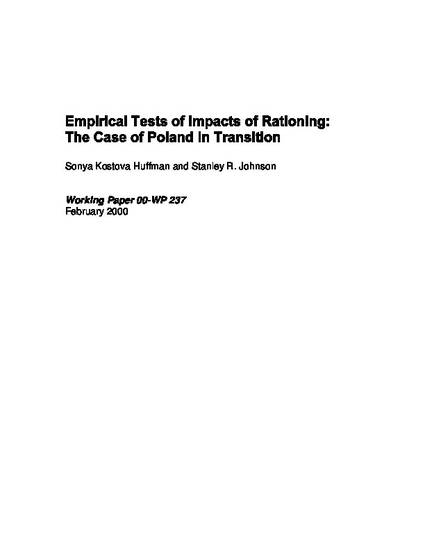
This study tests the theory of rationing, examining changes in household consumption behavior during the transition to a market economy in Poland, 1987-92. Using pre-reform data from the Polish Household Budget Survey, Huffman and Johnson develop a model of consumption under rationing and derive virtual prices for food and housing. A pre-reform Almost Ideal Demand System (AIDS) model with rationing is then used to estimate plausible values for price and income elasticities. Comparing pre-reform and post-reform (without rationing) AIDS models shows that own-price elasticities for nonrational goods are larger after the reform, and there is increased complementarity and decreased substitutability for nonrationed goods. This comparison also shows a 75 percent decline in real household welfare over the transition to a market economy.
This working paper was published as Huffman, Sonya Kostova and Stanley R. Johnson, "Empirical tests of impacts of rationing: the case of Poland in transition," Economic Systems 28 (2004): 79–99, doi:10.1016/j.ecosys.2003.12.001.
Available at: http://works.bepress.com/sonya-huffman/5/
